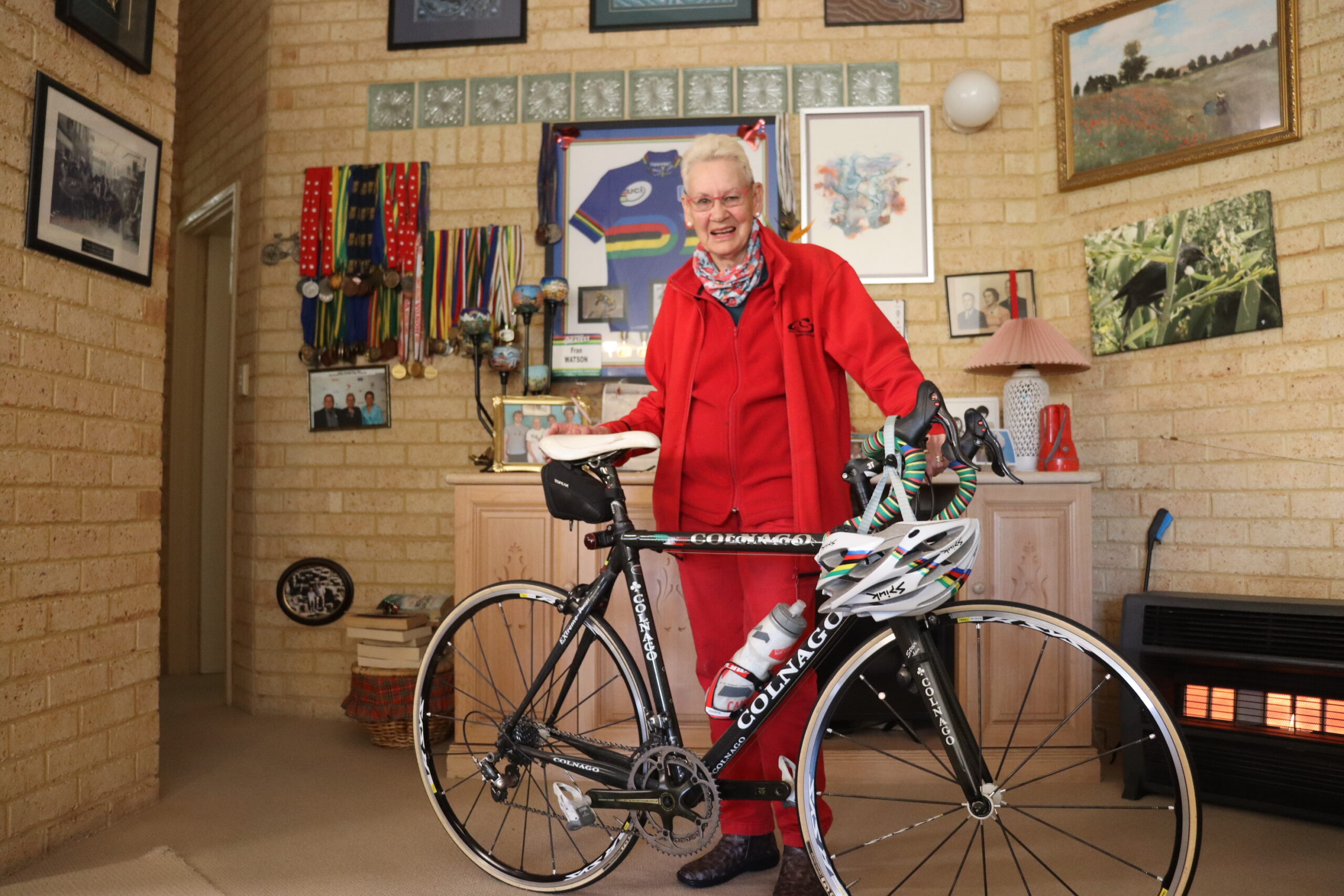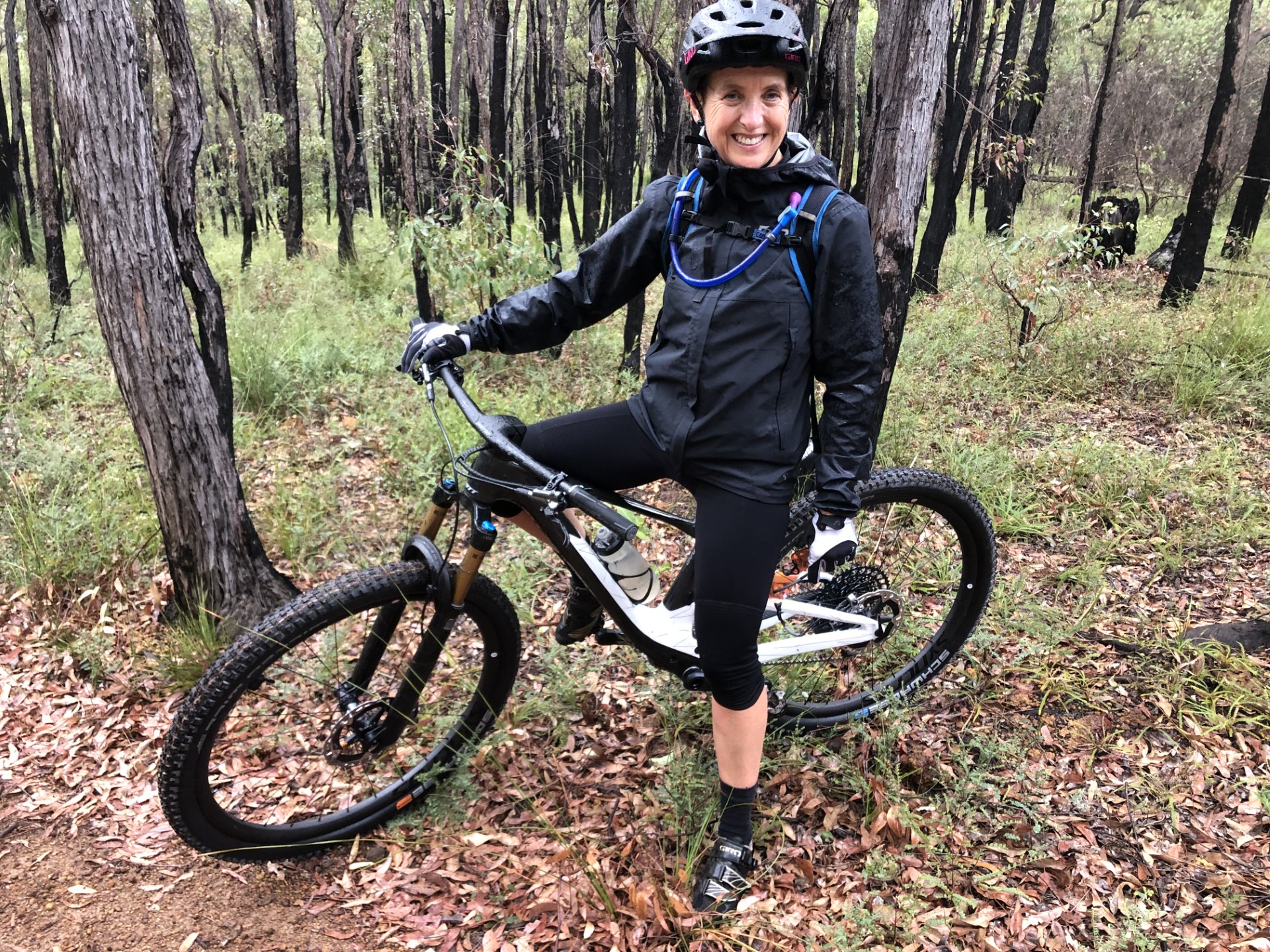E-bike use continues to expand in WA as a broader range of people buy into the flexibility assisted bike riding brings to the table.
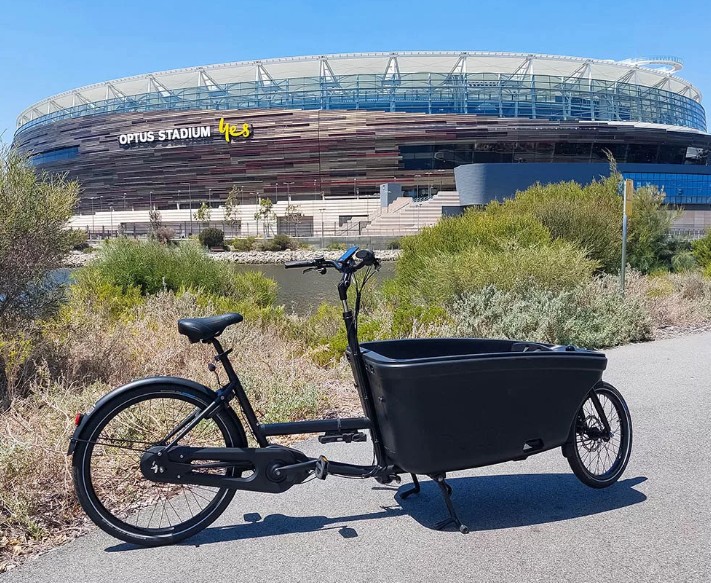
Despite the fact they often cost more than ‘acoustic’ bikes, e-bikes are the fastest growing bike category in the country, according to a recent WeRide Australia report.
They are also more popular with women than other types of bikes, with something like a third of Australian e-bikers being women according to WeRide’s report.
In WA, a recent WestCycle study found 50% of over-45 e-bike users were women.
While WA has not yet joined the likes of Queensland and Tasmania in offering e-bike subsidies – National Disability Insurance Scheme (NDIS) rebates up to $15,000 do exist for ‘assistive technology’ like bikes and e-bikes with a recommendation from an Occupational Therapist.
John Schelfhout (below), the owner of Hamilton Hill-based e-bike retailer, Ebikers, said his outlet was an NDIS-approved provider and sold many e-bikes – mostly e-trikes – to owners eligible for 100% NDIS rebates.
“These bikes are not cheap but they change people’s lives and in the case of conditions like Parkinson’s, are often the only means of mobility people have,” Schelfhout told WestCycle. “Some of these e-trikes are designed for people with disabilities and we’ve even sold bikes to people with quadriplegia that has literally given them a new lease of life.”
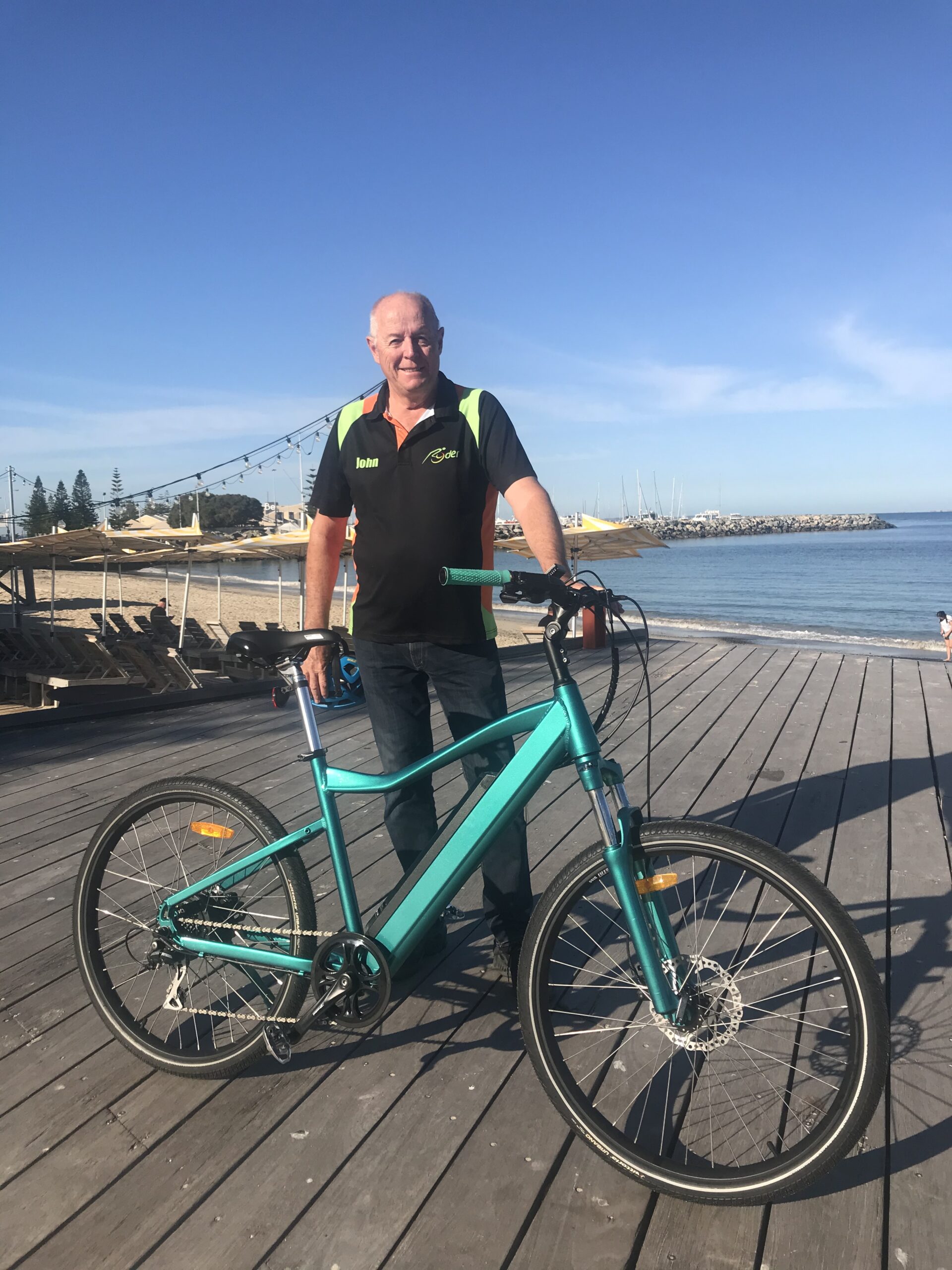
The case for subsidies…
While it is welcomed that those with a disability or aged care plan can access affordable bikes and e-bikes to help them get around, WestCycle has been advocating for the State’s existing Electric Vehicle (EV) subsidy scheme to include e-bikes.
There is a clear appetite for such subsidies that increase affordability not to mention help unclog roads and all the community benefits that flow from that from more liveable streets to healthier individuals.
Subsidies offered in Queensland ($500 for e-bikes; $200 for e-scooters) saw almost 5000 individuals sharing in $1 million of rebates within a month of the scheme opening in September 2024.
In Tasmania, subsidies offered in 2023 were similarly snapped up to quickly exhaust the available rebate pool. The State’s current offering is 3-year interest free loans of up to $10,000 to purchase an e-bike.
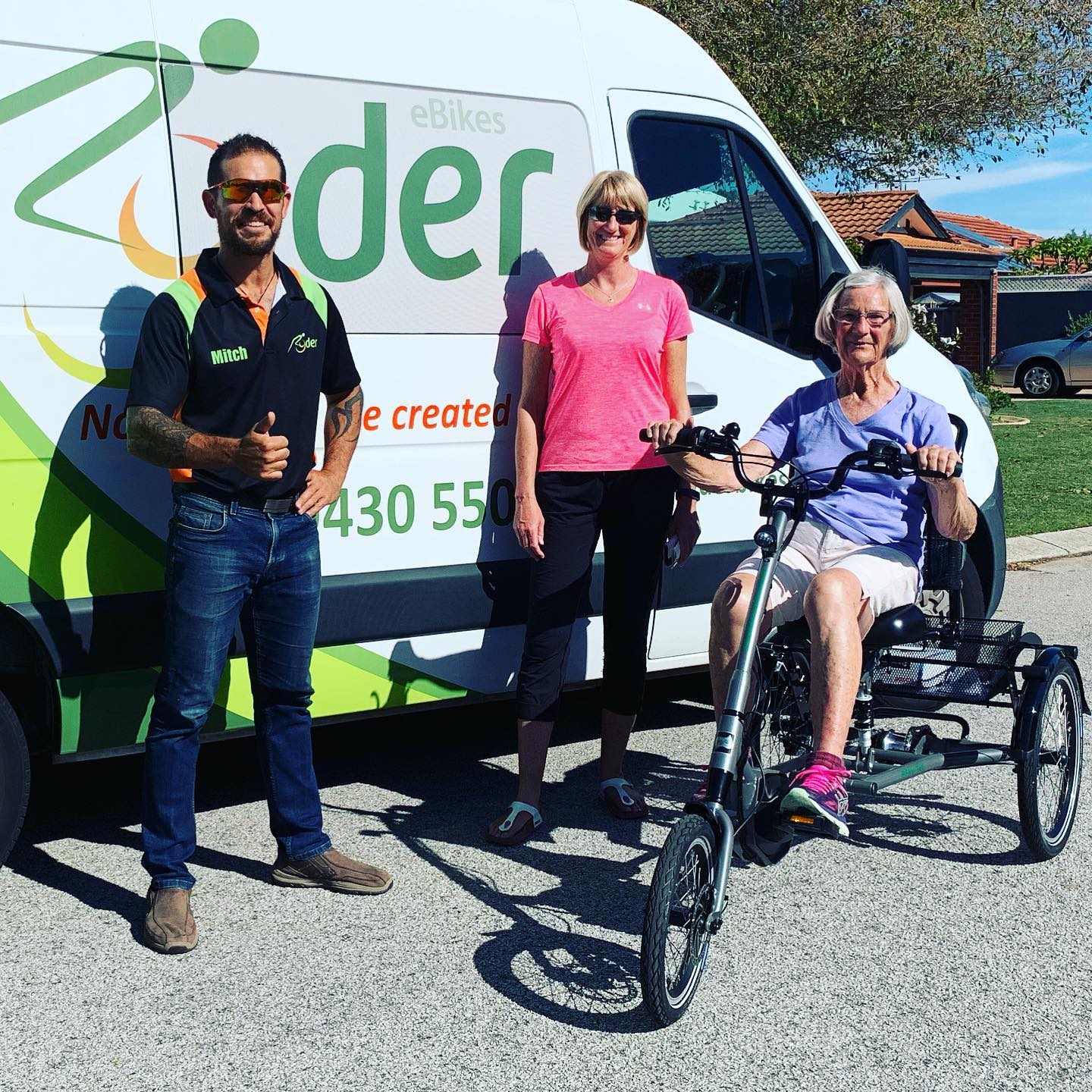
In WA, the market continues to evolve with domestic and international brands offering fold-up e-bikes, cargo bikes, commuter bikes, mountain bikes and more at ever-broader price points, often backed by try-before-you-buy rental schemes, or long-term leasing arrangements that are attracting more people to electrified bicycles.
Sparque-ing up…
Sparque Perth is an e-bike distributor and WestCycle partner that distributes a range of e-bike brands including Riese & Muller, GoCycle and Focus for lease, rent and sale.
The firm has a showroom in West Perth after setting up business in Melbourne a few years back, and is now present in most major Australian urban centres along with maintenance partnerships in WA towns like Geraldton and Albany.
Sparque’s ethos is to stock quality brands with an emphasis on leasing, as well as sales.
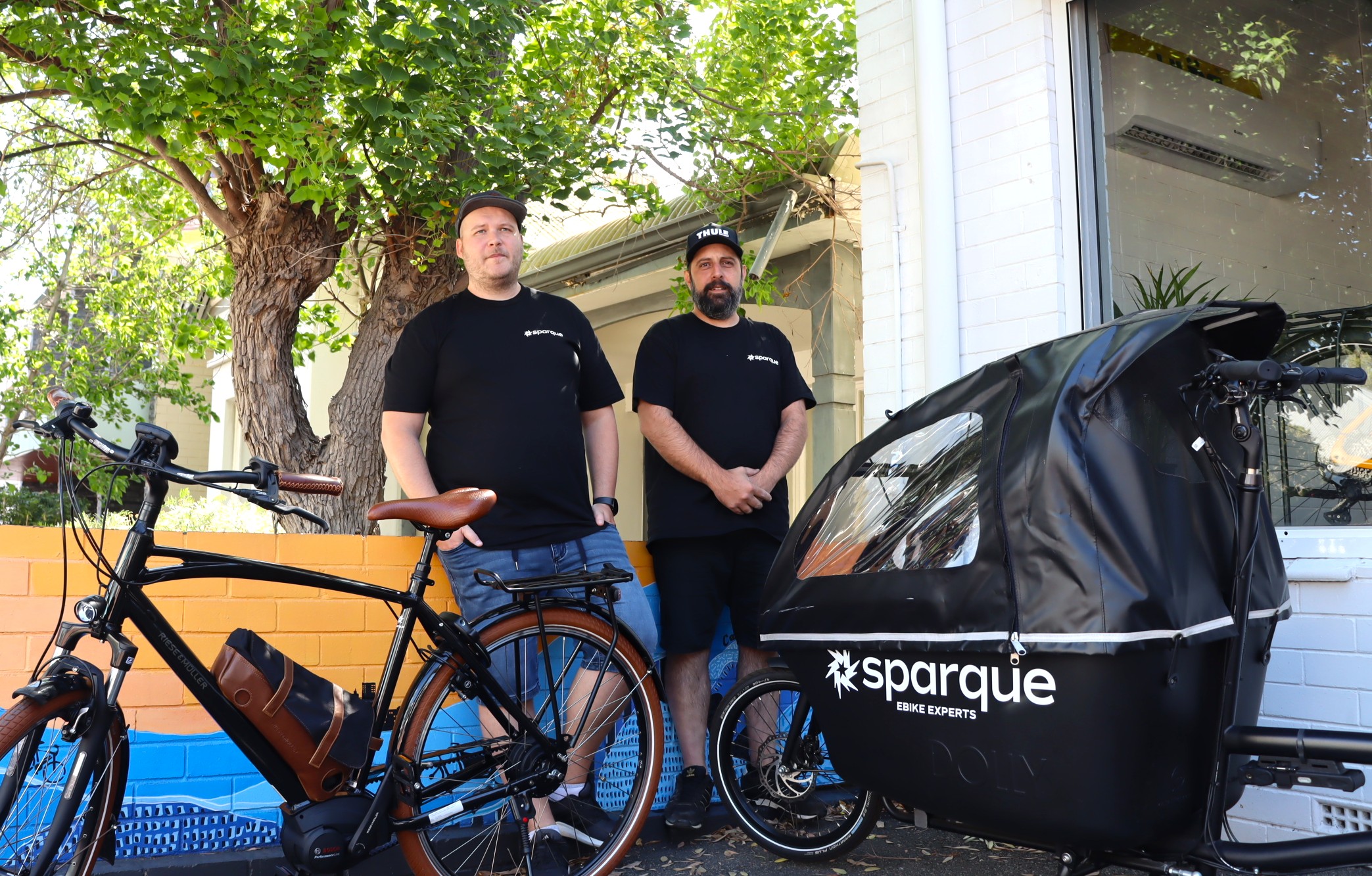
“Leasing is a really good gateway for people who might not be sure if they want to get an e-bike,” said Operations Manager Thomas Bruin (pictured above, left). “If they take a one year lease and they decide after one year this is not for them the lease ends.”
“People can also try 1-2 weeks rental and if they decide it is not for them then you just return the bike. Sure, you’ve paid us that rental fee but at least you are not stuck with a $15,000 e-bike.”
Sparque e-bike leases include insurance and service maintenance, plus lights, a quality lock, and soon – roadside assistance.
The e-bike smile
While they can be more expensive than other bikes, the potential for e-bikes to replace cars or reduce car usage and household spending is a driving force in a time of extreme cost-of-living pressure.
“For normal folk, for the people that want to commute, an e-bike is a great alternative, especially if you can get rid of the second car,” Bruin reflected. “For many families, having two cars is not sustainable anymore. In most cases the money saved pays for the e-bike in one or two years.”
The Dutchman added: “As soon as people start riding an e-bike for the first time and they feel how easy it is, how it helps on hills, how they can get around without sweating, they come off the bike and they have this e-bike smile.”
Check out WestCycle’s e-bike resource page (including an e-bike buyer’s guide) here.


